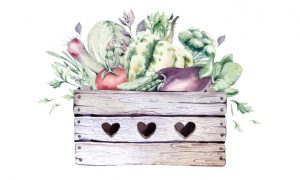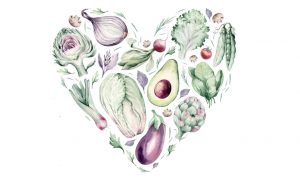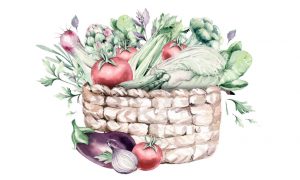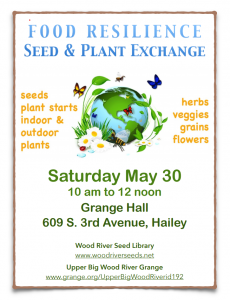Sharing sustenance.
Instead of Buying Guns or Hoarding Food, Let’s Feed Each Other
YES! Magazine/Solutions Journalism
by Michele Bigley
From my patio in Santa Cruz, California, I watched a scrub jay deliver a peanut shell to its oak-tree home. My neighbor hollered hello from the street below, explaining that she was afraid to go to the store for groceries. “A person was held at gunpoint at the Target,” she said. “Everyone’s going crazy.”
My grandparents had “war gardens” in the 1940s, and small, potted remnants from that time took root on their patios well into their golden years. I’d often asked them to teach me how to grow veggies. But they argued that because grocery store shelves were fully stocked again, they didn’t think it was necessary to teach me how to put in the work of growing my own food.
Yet now our local farms have waiting lists for their Community Supported Agriculture weekly deliveries.
We can plant seeds that take a little weight off our overburdened food system and grocery store workers.
Inspired by all this generosity, I wanted to go beyond simply planting a victory garden for my family’s sustenance. I wanted the sustenance to be shared, so I sent out a blast on Nextdoor.com. Within minutes, people offered up compost bins, some more seeds and soil, starter pots. My septuagenarian neighbors brought over tools, advice, and veggie starts. Another guy I didn’t even know was scavenging scrap wood from a construction site nearby; when I asked about how to make a garden bed, he lugged over some wood, and constructed one in my yard.
The retired crisis therapist across the street noticed the raised bed and said, “In the news, we’re seeing the worst of humanity right now, but around us we’re experiencing extreme acts of kindness, too.”
Many Americans have been raised with this ethos of individualism. I, too, was taught to take care of my family above all else. With the threats of joblessness and hunger in every community, I get that urge to protect what’s ours, especially when we’re terrified that a stranger’s cough can land us in the ICU.
But in the 1930s and 1940s, 20 million Americans stepped up in a time of great global terror. They planted gardens in abandoned lots, on patios, and on rooftops. Today, too, we have the potential to shift how we engage with our world. In fact, social distancing requires it. We can broaden our perspectives and open our hearts to people with whom we might share nothing more than proximity. They will be the ones there for us in crisis. They will deliver chicken soup if we’re sick. They will check in on us if they don’t see us out and about. And they will let us know when the grocery store finally has some Clorox wipes.
Now six weeks into our shelter-in-place, the spinach and strawberries, tomatoes and kale, cucumbers and peppers are sprouting. When I called my neighbor to revel in these tiny green victories, she told me to look on my front stoop. There, I found a pack of toilet paper
Blaine County IDAHO Local Food Alliance
sunvalleyinstitute.org




Leave a Reply